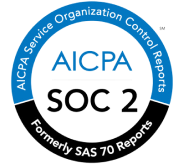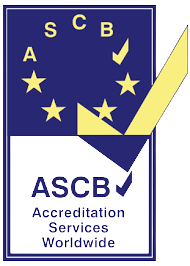Table of Content
Introduction
A skills-based organisation focuses on developing top-notch talent and skill inventory for everyone. This type of organisation provides boundless learning and growth opportunities to its team members and employees. The location or working hours would not matter.
To be a skills-based organisation, you need the right skills, mindset, and tools. For instance, uKnowva offers you the eLMS function, project and task management, and a 9-box grid tool in the personalised dashboard.
Read how these digital solutions assist you in developing a skills-based organisation in the post below. Maximise the learning outcomes with these tools as a talent manager in your organisation, making the firm a top choice for all young, aspiring, and seasoned professionals.
Also read: How Do You Identify The Talent Gap In Your Company?
Want to skip the post?

5 Top Traits of a Skills-Based Organisation
-
Laser-sharp focus is on core competencies
In a skills-based organisation, employees learn to equip themselves with new core competencies. They are eager to lead new projects and are hungry to learn more.
Employees understand the importance of developing new core competencies and skill sets. Employers make sure to communicate such expectations early on in skills-based organisations.
Both entities are on the same page. They develop each other’s core competencies with harmony, empathy, and clarity of the future they want to build together.
I can say that such an organisation works with purpose-driven people. Their position or power in the organisation does not matter as long as they are contributing every day and building core competencies as a habit.
For instance, when employers use uKnowva, they can continue to review the core competencies of their teams easily – in seconds! They simply use the AI Suggest tool. It has a smart functionality to group the KRA attributes and core competencies together with assigned weightage according to the industry benchmarks.
This feature enables first-time managers to assign better KPIs and core competencies to the employed people according to their calibre. Later, both entities discuss and come to the same page for driving the organisation growth further.
-
Promotion of flexibility and adaptability
Skills-based organisations want their employees to take charge of their lives. They will not be fed with everything because organisations want their staff to think through and brainstorm more. For that, they require the right skill set, mindset, and tools.
Smart and future-ready organisations provide all to their people. They would not have to ask twice. It leaves employees with ample time to sharpen their time management, people management, communication, empathy, project management, and conflict resolution skills.
When employees do that, they can easily exercise flexibility and adaptability. As working professionals in an organisation discuss their issues without hesitation, they can vouch to work at different hours.
Some employees might want to work from home, offshore locations, at odd hours, or straight away from the office. Every human being in an organisation has different hours of productivity.
A smart and skills-based organisation realises that. It makes people mature enough to come together on the same page and work in cohesion.
That means, even if employees are working from different locations, at various timelines, they count on each other and leverage the availability of the right HRMS tools like ours.
It allows them to be more flexible and adaptable to business model changes.
-
These organisations are flatter in the hierarchy
Skills-based organisations believe in internal talent mobility. These firms train, coach, and mentor their current or existing employees instead of hiring new staff.
It means each employee learns a myriad of skills during their tenure in the organisation. They can work on multiple projects at once when they learn the art of time management, creating boundaries, learning to say no, delegating the less prior work to another person, etc.
For exercising these skills, an organisation needs an intelligence workforce management tool. uKnowva plays out to be that assistant for young and aspiring working professionals to be stable, deployable and employable in leaner organisations.
We have eLMS, social intranet, project and timesheet management modules. Employees can leverage these to reskill, master their time, and collaborate with available colleagues to close the loop on pending tasks on time.
-
Employers encourage employees to continue to learn
Skills-based organisations encourage, motivate, and mentor employees to acquire new skills to remain deployable for an extended period. These organisations fuel the corporate culture to be progressive, productive, and proactive in terms of:
- Dealing with multiple projects
- Working with cross-functional teams
- Respecting each other’s opinions
- Agreeing to disagree
- Fighting the case to be on the same page
- Develop maturity together to be more empathetic
- Equipping oneself with more creative and analytical skills
- Learning to be more ROI-drive in every field and task
- Building a change-ready mindset
- Indulging in hard-to-have conversations without malaise in one’s heart
- Learning not to take feedback personally
Such are the soft skills which I’ve listed above to help employees always shine for every project they lead and be responsible for. Every organisation has a certain checklist of skills to develop. It depends on the culture and vision they want to build.
So, a skills-based organisation will have more clarity on what type of learning they want to provide to their staff. They will continuously evaluate and review employee sentiments and learning curve rates through:
- Surveys
- Discussion forums
- Polls
- Events
- Scrum calls
- eLMS analytics
Reporting and talent managers care about these insights in an organisation that prioritises skills over previous experience, educational background, or testimonials.
uKnowva helps such an organisation to standardise the process. We have all the modules ranging from eLMs, analytics, personalised dashboards, suggestion boxes, surveys, forums, chat boxes, HR chatbot, etc.
Employees know whom to reach when in doubt about their learning curves and development path when organisations invest in uKnowva’s portal.
-
Employee have authority and autonomy over their tasks
Organisations empower their staff to lead projects. They trust the employees they hire, onboard, train, and retain for a reason. Employees in a skills-based organisation know their worth, and they look forward to achieving more in less time.
Employees have clarity as to what they must do during a period to earn respect, praise, and recognition. They seldom have any doubt and face very few roadblocks in levelling up their expertise in a field or skill.
They keep the workflow, task, and project management transparent with the team leader or the reporting manager. The organisation is like a big family where everyone knows each other’s weaknesses and strengths. So, it is easy to trust one person with another colleague, project, or task at hand.
uKnowva makes HR managers leverage analytics, project and task management, and seamless leave and attendance integration with payroll. While utilising these modules, HR managers allow employees to have more control over their regular days at work, irrespective of the shift they are allotted.
Employees know who they report to, what project they have to complete first, what skills they must have, what courses are pending to learn during a defined time, etc.
With such intelligence and self-serving systems, there is no scope for micromanagement and miscommunication. So, an employee also feels the excitement to enrol in new projects and earn new badges and accolades.
Conclusion
I hope now you know the top 5 traits of a skills-based organisation. After each point, I have given uKnowva-based solutions. If our low-code solutions match your HR tech requirements to be a more scalable, flexible, and skills-based firm, reach out to our experts right away. We will be super elated to help and assist you in implementing future-ready, people-first, and skills-oriented modules in no time!
FAQs on Skills-Based Organisation
How does a skills-based approach differ from a traditional hierarchy?
In a skills-based organisation, the hierarchy is less rigid, and individuals are valued for their specific skills. Decision-making is often decentralised, allowing for more flexibility and adaptability.
What are the benefits of transitioning to a skills-based model?
The benefits include improved agility, enhanced employee engagement, better talent utilisation, and a more adaptable workforce capable of meeting evolving business needs.
How can employees identify and showcase their skills in a skills-based organisation?
Employees can use tools like skill assessments, training records, and project portfolios to highlight their competencies. Regular communication with supervisors about skill development is also encouraged.
Are there specific industries or sectors where a skills-based approach is more effective?
While a skills-based model can be applied across industries, it is particularly effective in fast-paced, dynamic sectors such as technology, where skill requirements evolve rapidly.
How does performance evaluation work in a skills-based organisation?
Performance is often assessed based on the application and development of skills rather than traditional metrics. Continuous feedback and regular skill assessments play a crucial role in this process.
Can a skills-based approach lead to a more diverse workforce?
Yes, by focusing on skills, organisations can tap into a broader talent pool, potentially fostering diversity. It allows individuals with diverse backgrounds and experiences to contribute based on their skills.












